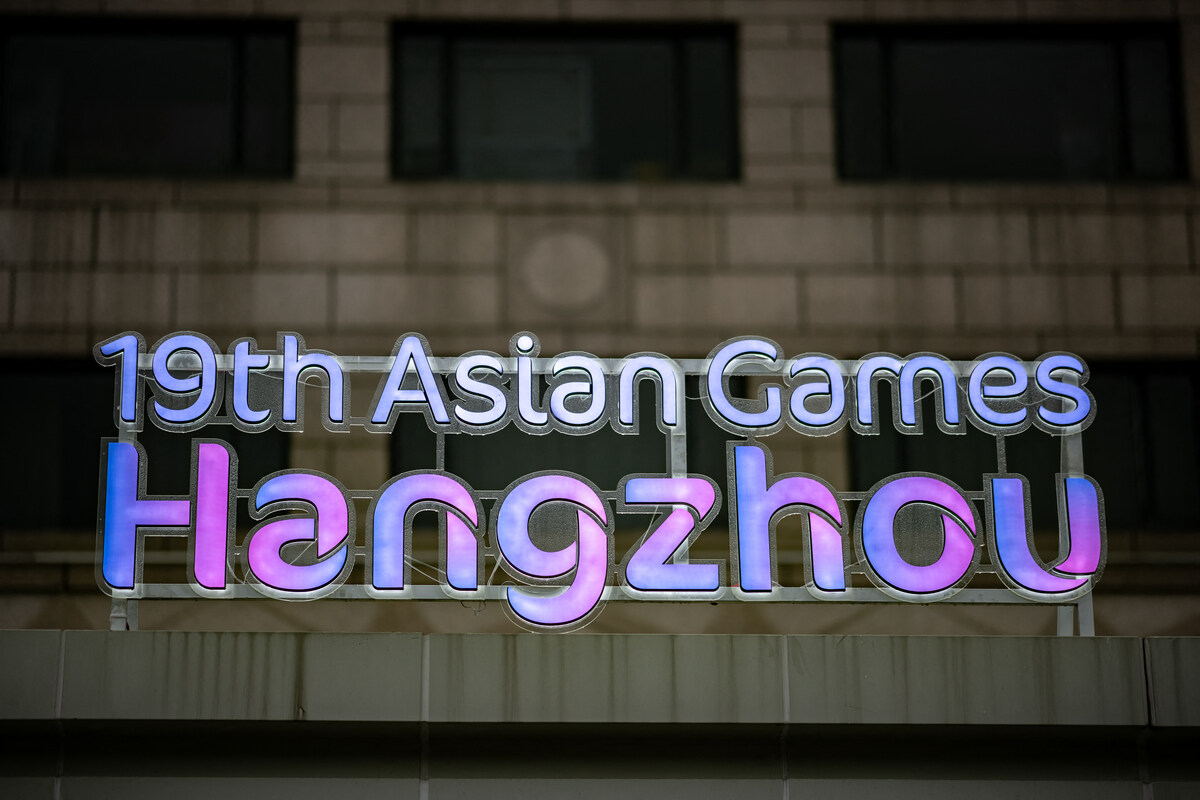Kabul, Afghanistan– Wushu fighter Khalid Hotak sweats in his chest padding as he spars with a teammate in a Kabul gym, defying financial worries to prepare for the Asian Games as best he can.
Afghanistan will compete in 15 sports in Hangzhou, the country’s first Asian Games since the Taliban seized power in 2021.
The Games, the biggest in history and boasting more competitors than the Olympics, open on Saturday after a delay of a year because of China’s zero-Covid policy, since abandoned.
Hotak and his three teammates begin their training for the Chinese combat sport, similar to kung fu, early each day at the federation’s training center, stretching and honing their techniques to bring their opponents down.
“I would often watch Chinese films… I would watch Jet Li and I liked the strength of his body and when I learned about him I realised he was a wushu fighter,” Hotak told AFP of the Chinese-born movie star.
“That’s why I went to a club and registered myself. I would stand in the back row, but then I found the potential in my body.”
Hotak, 30, won bronze at the last Asian Games in 2018 — a first for Afghanistan in wushu.
He goes for a medal again on Sunday, the opening day of the wushu competition in Hangzhou.
“Medals from the Asian Games are important to all of Asia, but to us they are even more important,” said the father-of-one, referring to the obstacles Afghan competitors must overcome.
Scraping by
Afghanistan’s economy has struggled through decades of war, a crisis deepened by international sanctions on the banking system and foreign assets after the Taliban government came to power.
The team say the Taliban authorities support sport, but there is no government financial backing for athletes competing on the international stage.
Hotak gets by on 13,000 Afghanis (155 euros) as a sports adviser in the government’s physical education department.
His teammate, 29-year-old Nasratullah Habibi, who has won several international medals in the sport, earns a decent living by owning three wushu clubs.
But he admits his family’s welfare still weighs on his mind and that young men have abandoned sport to focus on trying to find work.
“When I’m here training for the Asian Games my mind is also on my family and how I’m going to feed them, and when I’m with them I’m thinking about my upcoming matches,” he said.
The team’s coach Mahfooz Wafaa told AFP that none of the national team take a salary for their efforts.
“Everyone is training at their own expense. Some of the boys say, ‘Coach, we don’t have the money to pay the taxi fare to attend training,'” he said.
“But because sport is our passion and the responsibility is on us, we have no other option but to fulfil our responsibility.”
Afghan women at Games
Afghanistan’s representation at international competitions since the Taliban takeover is complicated by several factors, key among them that the government has not been recognized by any country.
Atal Mashwani, spokesman for the General Directorate of Physical Education and Sports, which now manages the affairs of Afghanistan’s Olympic committee, said athletes won’t bear the Taliban government flag officially in China.
But he added: “What is important is they will be going and competing there representing Afghanistan.”
A major sticking point for recognition of Afghanistan’s new rulers — in sport and beyond — is the rights of women.
There will be no women traveling from Afghanistan in the delegation of more than 120 competitors, coaches and supervisors, said Mashwani, in line with the Taliban authorities’ crackdown on women’s participation in sport and public life.
But some foreign-based Afghan women will be taking part and are listed in volleyball, athletics and cycling.
Besides harboring dreams of winning gold at what he says will be his last major competition, Hotak said he always wanted to encourage his children in sports.
His only child is 18 months old, but he has plans for her already.
“When she grows up I will make her a very good athlete,” he said.








